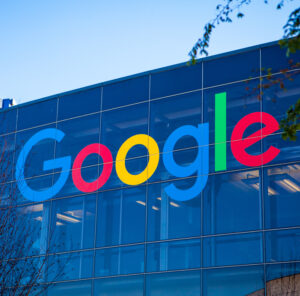“Data-Driven Thinking” is written by members of the media community and contains fresh ideas on the digital revolution in media.
Today’s column is written by Lauren Wetzel, COO of InfoSum.
When you download apps to your phone, most of them ask for information about you and the device you’re using. They may want to know your name, email or home address. Sometimes, even your exact location.
All of this happens with permission (though not always ethically), but the amount of access that these apps then have to personal data may surprise people. It’s no secret that Meta tracks visitors on its various platforms. What people might not know is how far and wide it tracks them across the internet.
In its earnings report for the first quarter of 2022, Facebook said it had 2.94 billion monthly active users. At the same time, many of these users now sense a loss of control over their personal information. But it doesn’t have to be this way.
A YouGov study found that people are more likely to sign up for an online platform if they can see how their information will be used. This presents a trust opportunity for marketers. There is a future within reach where people can be confident that, in exchange for data, they are receiving something back of fair value, such as enriching, customized experiences, curated content or early access to new deals. And all while maintaining total transparency and control.
When customers are confident and feel in control of their data, their brand buy-in and loyalty will increase. And marketers can make strategic, data-driven decisions to provide a richer customer experience. Despite Google postponing its deprecation of third-party cookies again, marketers are facing the inevitable: They must invest in a first-party data strategy to get a clearer picture of their customers. So what will that look like?
The two essential Ts of a first-party data strategy: trust and transparency
The move toward first-party data will power the modern advertising world, but it will require trust and transparency. According to Edelman’s Trust Barometer this year, distrust is now society’s default emotion. Six in 10 consumers say their default tendency is to distrust something until they see evidence it is trustworthy. For an industry that has often played fast and loose with consumers’ trust, it’s easy to see why there’s a lack of faith.
What’s more, trust is tremendously fragile. It can be hard-won and easily broken. As brands and businesses move toward a first-party data model that will often require consumers to proactively sign up and register with their details, it may seem like brands are already behind.
So the value exchange must be clear: Consumers need to know, if they share their data, it won’t be used nefariously, and they will get some clear benefits back. On the flip side, brands need to ensure that privacy is prioritized. Will it take regulation with fangs to deter advertisers from abusing data? Let’s hope the industry can act together before that becomes a necessity.
Expectations for value are growing
We’re already seeing better education underway about the exact value exchange that effective advertising requires. As consumers become more aware, they will want to know whether something is a fair transaction. If companies continue with murky practices or mislead their customers, they won’t survive in an increasingly privacy-conscious world.
To build this trust, brands need to do two things: Clearly communicate the benefits and implications of data-sharing, and treat the data in a way that befits a modern-day, technology- and data-conscious consumer.
It is both good business and the right decision to make trust the cornerstone of your privacy strategy moving forward.
Follow InfoSum (@InfoSum) and AdExchanger (@adexchanger) on Twitter.
For more articles featuring Lauren Wetzel, click here.
















